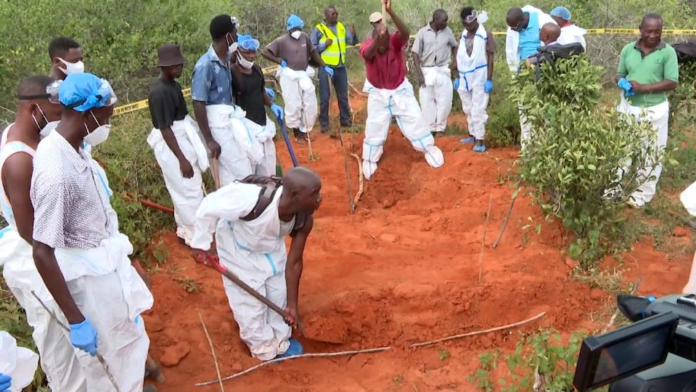Families of the Shakahola massacre victims continue to endure a prolonged wait as the government struggles to finalize the DNA identification process.
The Government Chemist is grappling with financial and logistical hurdles, leaving many relatives in distress as they seek closure.
Dr. Joseph Kimani, head of the Forensics Directorate, explained that extracting DNA from the remains has been particularly complex due to the advanced decomposition of the bodies.
“It is a costly process, especially with exhumed remains, because it requires highly specialized chemical treatments rather than standard DNA extraction methods,” he stated.
The condition of the bodies has further complicated the process, with most remains being severely degraded due to prolonged burial. William Munyoki, an official from the Government Chemist, highlighted the difficulty of obtaining viable DNA samples.
“The soil in which these bodies were buried contains high levels of humic acid, which accelerates DNA degradation, making it challenging to generate accurate profiles,” he noted.
Authorities have urged more family members to submit DNA samples, as the number collected so far is inadequate for effective cross-matching.
“For every set of remains, we ideally need samples from at least three close relatives to enhance accuracy. Delays occur when we don’t have enough comparative samples,” Kimani explained.
Securing funding for the process has been another major obstacle. Officials revealed that a key test, the polymerase chain reaction (PCR), is essential but unavailable locally, forcing the government to import costly testing kits.
“There are no local manufacturers for these kits, and procurement from international suppliers takes time. A single kit for 200 tests costs close to Ksh1 million, making the financial burden significant,” Kimani said.
Out of the 453 bodies exhumed, only 333 DNA samples have been tested, and a significant number remain unmatched due to the shortage of comparative samples.
“We still have several profiles without matches, so it is crucial for more families to come forward,” Munyoki added.
For the affected families, the ongoing delays mean continued uncertainty and postponed burials. With financial constraints and bureaucratic challenges slowing the process, the long wait for closure remains a painful reality.







